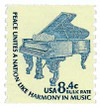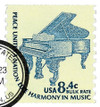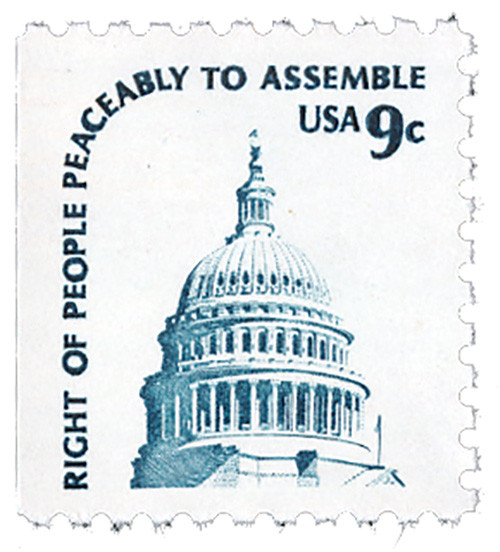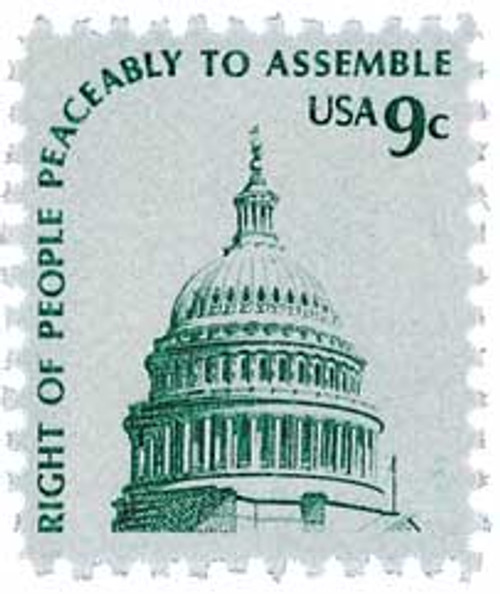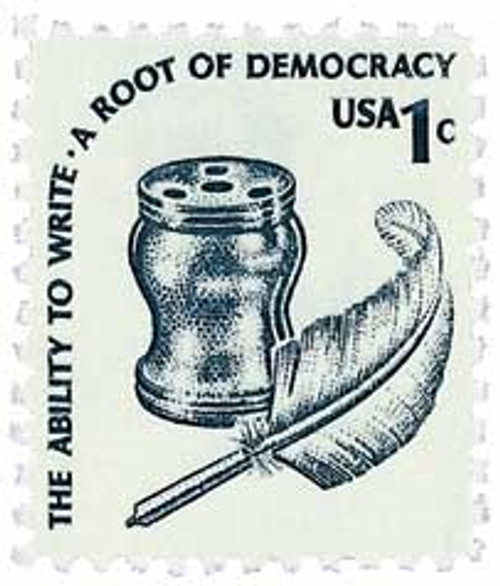
# 1615C - 1978 8.4c Grand Piano, coil
Americana Series Coil Stamps
Perforation: 10 vertically
Birth Of Scott Joplin
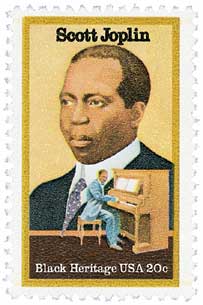
While Scott Joplin’s exact birthdate is unknown, it’s often considered to be November 24, 1868, as shown on his tombstone. And he was reportedly born in Texarkana, Texas. Other reports suggest he was born between late 1867 and early 1868 in Linden, Texas.
Joplin was the second of six children born to a former slave and free-born African American woman from Kentucky. His father worked on railroads while his mother was a cleaner, but both were also talented musicians. Joplin’s father played the violin and his mother sang and played the banjo. Because of this, Joplin received some musical training as a child and enjoyed playing the piano while his mother cleaned.
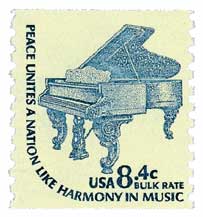
Joplin eventually met Julius Weiss, a German music professor who tutored the children of a prominent local family. Weiss was very impressed with Joplin’s talent, and taught him for free, acknowledging the family’s financial issues. For five years, Weiss taught Joplin to enjoy music as both art and entertainment. He also helped the family get a used piano for their home. Years later, when Joplin was a successful composer, he sent Weiss money.
As a teenager, Joplin performed in a vocal quartet and taught guitar and mandolin in his spare time. He’d also worked as a laborer with the railroad but eventually decided to give that up to become a traveling musician. Joplin then joined the Texarkana Minstrels and performed at a fund-raiser for a monument to Confederate President Jefferson Davis. Joplin struggled to find opportunities but found the most steady work in churches and brothels. It was during this time that he played a precursor to ragtime known as jig-piano. Joplin enjoyed combining western waltzes and marches with the rhythms of African American songs.
Click here to listen to some of Joplin’s music.
Americana Series Coil Stamps
Perforation: 10 vertically
Birth Of Scott Joplin

While Scott Joplin’s exact birthdate is unknown, it’s often considered to be November 24, 1868, as shown on his tombstone. And he was reportedly born in Texarkana, Texas. Other reports suggest he was born between late 1867 and early 1868 in Linden, Texas.
Joplin was the second of six children born to a former slave and free-born African American woman from Kentucky. His father worked on railroads while his mother was a cleaner, but both were also talented musicians. Joplin’s father played the violin and his mother sang and played the banjo. Because of this, Joplin received some musical training as a child and enjoyed playing the piano while his mother cleaned.

Joplin eventually met Julius Weiss, a German music professor who tutored the children of a prominent local family. Weiss was very impressed with Joplin’s talent, and taught him for free, acknowledging the family’s financial issues. For five years, Weiss taught Joplin to enjoy music as both art and entertainment. He also helped the family get a used piano for their home. Years later, when Joplin was a successful composer, he sent Weiss money.
As a teenager, Joplin performed in a vocal quartet and taught guitar and mandolin in his spare time. He’d also worked as a laborer with the railroad but eventually decided to give that up to become a traveling musician. Joplin then joined the Texarkana Minstrels and performed at a fund-raiser for a monument to Confederate President Jefferson Davis. Joplin struggled to find opportunities but found the most steady work in churches and brothels. It was during this time that he played a precursor to ragtime known as jig-piano. Joplin enjoyed combining western waltzes and marches with the rhythms of African American songs.
Click here to listen to some of Joplin’s music.






